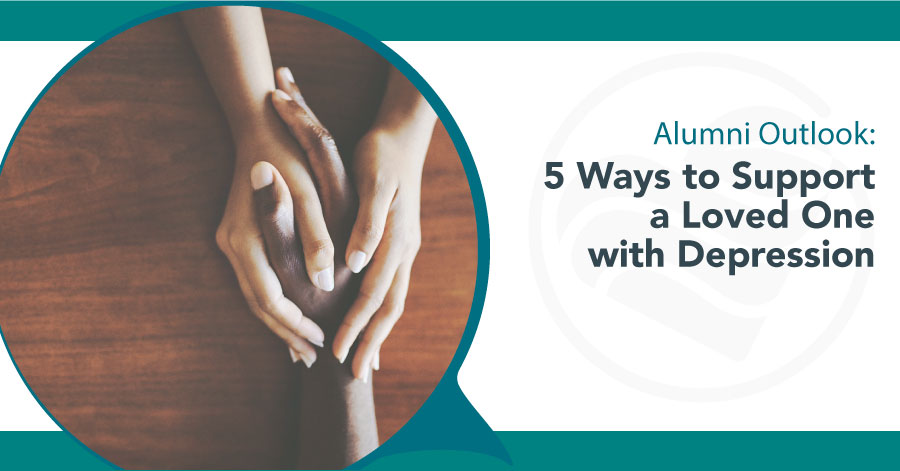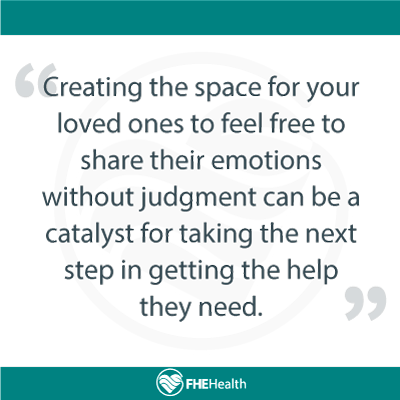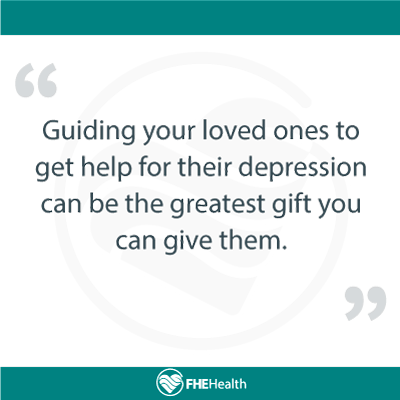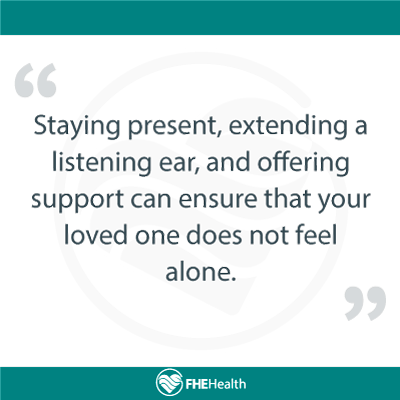
Depression is a mental health condition that does not discriminate. From doctors, mothers, teachers, and even preachers – depression is one of the most common mental health issues in existence. As someone who has struggled with depression and anxiety myself, I know how absolutely hopeless this condition can feel. Despite the many advancements in understanding the science behind mental health disorders, society continues to hold tight to age-old stigmas that often prevent individuals from receiving the help and support they need.
Depression has often been viewed as a temporary mindset that someone should just “pull themselves out of”. The truth is, that depression is a complex mental health condition that involves a variety of factors such as genetics, hormones, nutrition, environmental, and sociological factors. If you have a loved one who is struggling with depression, it is likely that you may feel helpless and willing to do anything you can to help. Here are a few ways you can support your loved one who is struggling with depression.
Listening Without Judgment
 One of the most important things to remember when you are interacting with anyone who is struggling with any mental health condition is how important it is to listen without casting any judgment. One of the most powerful ways to support an individual is to let them air their emotions and to meet them with love. Helping your loved one walk through their depression often looks like just giving them a listening ear without giving advice.
One of the most important things to remember when you are interacting with anyone who is struggling with any mental health condition is how important it is to listen without casting any judgment. One of the most powerful ways to support an individual is to let them air their emotions and to meet them with love. Helping your loved one walk through their depression often looks like just giving them a listening ear without giving advice.
Depression is an isolating condition that often leads the victim to feelings of hopelessness and utter loneliness. Creating the space for your loved ones to feel free to share their emotions without judgment can be a catalyst for taking the next step in getting the help they need.
Extend Compassion
When I think back to some of the most depressive moments in my life I think about all of the people that never gave up on me. I think about the countless texts, calls, and even house visits that my tribe made in order to make sure I was OK. These extensions of compassion stand out louder in my mind than any of the despairing thoughts I was having when I was working through my depression.
When someone is struggling with depression it’s not uncommon for the disorder to fill their head with the false narrative that they are a burden. Depression is cunning, baffling, and powerful – much like an addiction. This mental health condition will have your loved ones believing they are unworthy and bothersome. Extending compassion to your friend or family member can help remind them how loved and supported they are.
Encourage Positive Coping Mechanisms
In the trenches of depression, it is often hard to fathom the idea of experiencing happiness again in this lifetime. This mindset is a byproduct of the mental condition of someone struggling with depression. I can remember dealing with my depression by choosing to isolate and sleep as often as possible. I had no motivation to do anything and truthfully, this perpetuated my depression.
If your loved one is struggling to get out of bed or indulge in self-care because of their depression, it’s always a great idea to ask him/her what makes them feel better. Perhaps showering, putting on makeup, going for a walk, journaling, watching a movie, or even just spending time with someone they love is the answer. Offering to take your loved one to dinner or to come over and have a movie night may be the turning point in suffering from crippling depression. These types of personal experiences can divert your loved one from staying stuck in a cycle of unhealthy behaviors and to lean into positive coping mechanisms.
Educate Yourself on Depression
One of the most important components of being helpful to your loved ones struggling with mental illness, especially depression, is to educate yourself on the condition. Depression is not always as you see it depicted on movie screens. Sometimes depression is haunting the seemingly happiest of happy friends and family members that you have. When I was struggling with depression, I was sure to not allow anyone close enough to see the war that was waging within my own mind.
Understanding depression, at its core, is vital in helping your loved ones work through their tough days. Oftentimes, we assume that if our loved ones need our help, they will ask. This is not always true. Depression is a condition that often plagues individuals the heaviest when they are isolated. The complexities surrounding depression often vary in appearance. Here are a few signs that your loved one may be struggling with depression:
- Appearing sad, hopeless, or unmotivated
- Neglecting activities he/she would normally engage in such as hobbies, family gatherings, hanging out with friends
- Being unable to accomplish daily tasks due to being too exhausted or unmotivated
- Consistently have a negative attitude and biases towards responsibilities or life in general
- Excessive sleepiness or insomnia
- Gaining or losing weight and changes in appetite
- Feelings of excessive guilt and inadequacy
- Inability to focus or concentrate
- Isolation
- Complaining about physical aches and pains
- Having suicidal thoughts or actions
- Engaging in self-destructive behaviors
Help Your Loved One Get Help
 I remember the exact day that my family confronted my battle with depression. I remember how angry I was at the time, however, I also recognize how this simple act saved my life and restored my hope. When someone is struggling with depression, it is very difficult for them to completely identify how their condition is affecting them. Asking for help can lead to feelings of inadequacy, judgment, and even embarrassment. Guiding your loved ones to get help for their depression can be the greatest gift you can give them.
I remember the exact day that my family confronted my battle with depression. I remember how angry I was at the time, however, I also recognize how this simple act saved my life and restored my hope. When someone is struggling with depression, it is very difficult for them to completely identify how their condition is affecting them. Asking for help can lead to feelings of inadequacy, judgment, and even embarrassment. Guiding your loved ones to get help for their depression can be the greatest gift you can give them.
As I mentioned earlier, depression often leads to feelings of inadequacy and lack of motivation. Helping your loved one is not always as simple as suggesting how they deal with their depression. Sometimes, offering help looks like grabbing your loved one’s hand and connecting them with effective mental health treatment. It might be a good idea to lead the conversation by empathizing with how unfair depression is. Next, you can make the suggestion that they seek guidance from a medical professional to ensure they live the life they deserve.
 Helping your loved ones deal with their depression is not a one-size-fits-all approach. You may find yourself frustrated if your loved one is in denial about the severity of their condition. No matter what approach you take, it is most important that you consistently pour love and support into your loved one as you extend compassion all along the way. Depression can evolve over time, therefore, your loved one’s needs may also shift as well. Staying present, extending a listening ear, and offering support can ensure that your loved one does not feel alone.
Helping your loved ones deal with their depression is not a one-size-fits-all approach. You may find yourself frustrated if your loved one is in denial about the severity of their condition. No matter what approach you take, it is most important that you consistently pour love and support into your loved one as you extend compassion all along the way. Depression can evolve over time, therefore, your loved one’s needs may also shift as well. Staying present, extending a listening ear, and offering support can ensure that your loved one does not feel alone.






